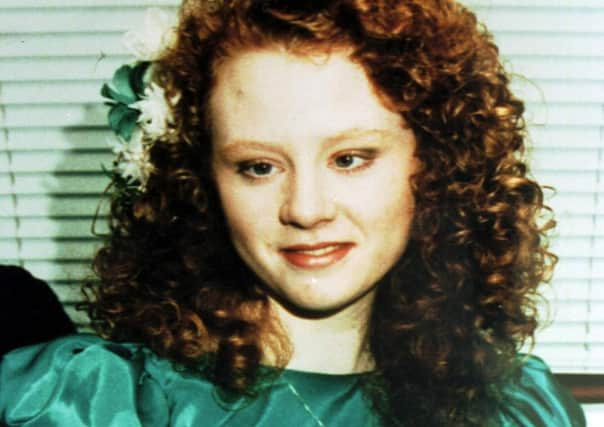Prosecutors fail in second trial bid of Amanda Duffy murder suspect


Francis Auld stood trial at the High Court in Glasgow in 1992 for the murder of Amanda Duffy, 19, and was acquitted by a jury on a Not Proven verdict.
Ms Duffy’s body had been found on waste ground in Hamilton, South Lanarkshire, in May that year.
Advertisement
Hide AdAdvertisement
Hide AdThe Crown Office applied to the High Court under double jeopardy legislation to set aside the acquittal and prosecute Mr Auld again. A hearing on the application took place before senior judges at the Appeal Court in Edinburgh last month.
Giving their ruling at a brief hearing at the court yesterday, judge Lady Dorrian said: “The application is refused.”
Under the 2011 Double Jeopardy (Scotland) Act, a suspect can face retrial for a very serious crime if “compelling new evidence” emerged, if the original trial was tainted or where a suspect admitted the offence.
But the Crown cannot proceed with a retrial unless it gets permission from High Court judges to proceed.
Submissions in the current case were heard by the Lord Justice General, Lady Dorrian and Lord Bracadale.
Ms Duffy was last seen alive in Regent Way, Hamilton, in the early hours of 30 May 1992.At about 8pm that evening, her semi-naked body was found by passers-by on waste ground adjacent to Miller Street in the town. Her face and head were covered in blood.
The Crown brought the retrial application claiming that alleged admissions made, or which became known of, after the acquittal, substantially strengthened their case against Mr Auld when taken together with the evidence led at trial. Mr Auld denied that any of the alleged statements had been made. Prosecutors relied on a conversation said to have happened between Mr Auld and a prison officer who in 1992 was working at HM Remand Institution at Longriggend. But Mr Auld’s legal team argued that the alleged statement to the officer was “inadmissible”.
Advertisement
Hide AdAdvertisement
Hide AdThe judges agreed and ruled the alleged statement inadmissible as evidence and not capable of being placed before a jury. Other alleged comments also failed to meet the necessary tests.
A Crown Office spokesman: “We note the court’s decision. Given the application was based on alleged admissions, this does not prevent future applications being made and the case will remain under regular review by the cold case unit.”